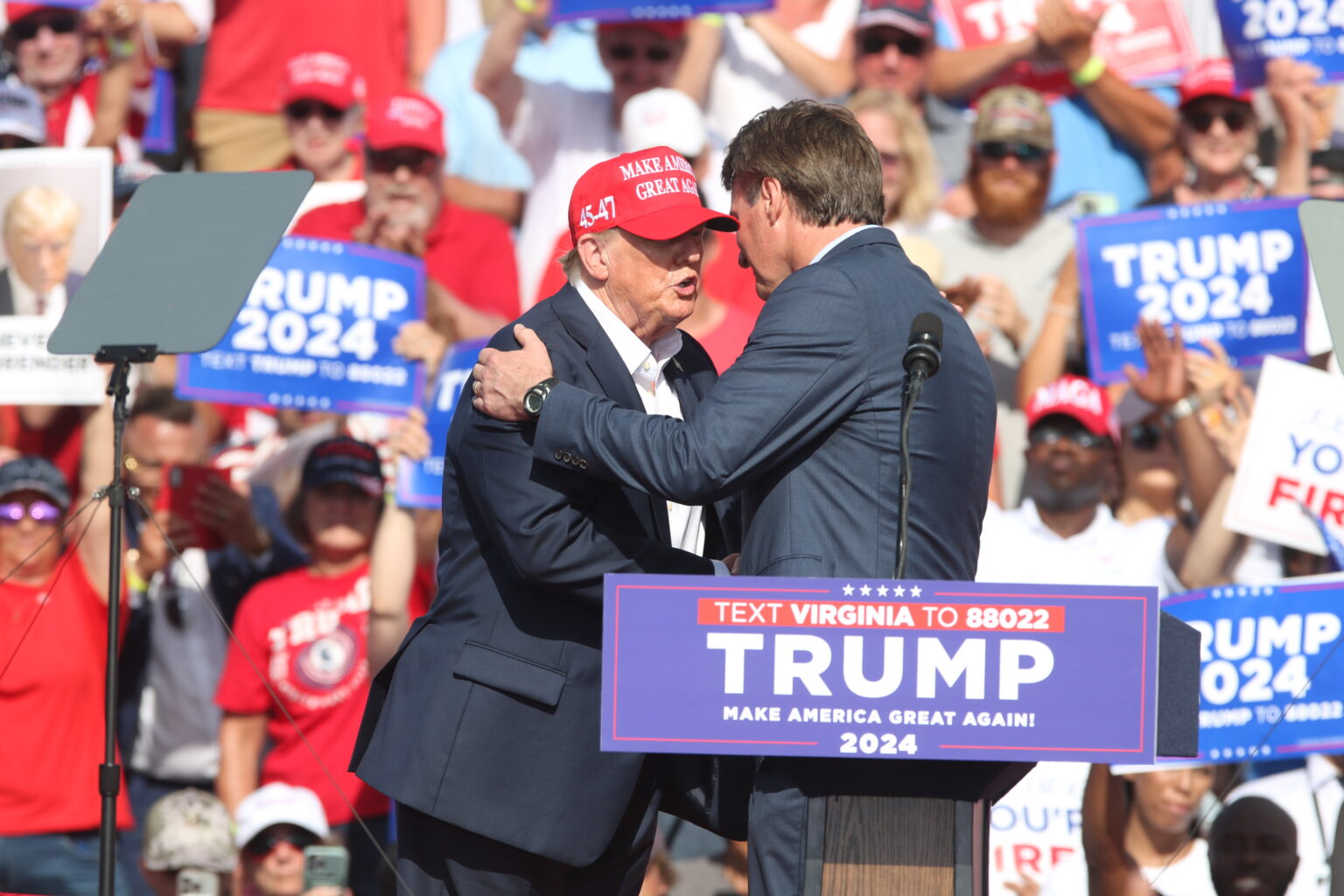Gov. Glenn Youngkin emerged from this fall’s campaign as one of Donald Trump’s most enthusiastic supporters. But the incoming president’s plans have the potential to create major challenges for Virginia’s present governor.
For Trump, winning back the White House was ‘all about that base.’ It won’t win Virginia for him.
Youngkin is pitching a tax cut, and cites a hefty state budgetary surplus as justification. But surpluses can evaporate in a Mar-a-Largo minute, and the prospects of declining revenue flowing to Virginia because of cutbacks in federal employment and reductions in Medicaid reimbursements are making Virginia budget makers skittish about the future.
We have seen the ‘Swamp’– and ‘they’ is us
Trump has stated his desire to fundamentally change the federal bureaucracy by eliminating civil servants either deemed expendable or who do not exhibit sufficient loyalty to the president. He could start by reinstituting Schedule F, an executive order issued late in his first term (and rescinded by President Joe Biden) to strip job protections from many career federal employees and make them more like political appointees who can be fired at will. This would devastate the Commonwealth.
More federal workers live here than in any other state; 85,000 live in Northern Virginia and another 60,000 make Hampton Roads their home. Many earn a good salary and cuts in their positions would mean losing state revenue that comes both from their income taxes and the sales taxes generated from their purchases. Remember sequestration, when Virginia took a disproportionate hit from cuts in federal spending? Or the various government shutdowns? When the federal government sneezes, Virginia catches a cold.
Substantial cuts in federal employment might not dramatically affect the state budget until Youngkin has left office, but budget writers are justifiably concerned about future revenue shortfalls, thereby making any major tax cut problematic.
The Medicaid dilemma
While Trump’s attack on federal employees may garner the largest headlines, his plans for cutting Medicaid pose more serious fiscal challenges for the states. Since 1965, Medicaid has been the largest source of medical and health care funding for poor and disabled Americans, providing free health insurance to over 80 million people, many of whom are children. It is administered by the states, but major program funding is provided by the federal government. For every dollar a state spends on Medicaid, Washington provides a match to cover the costs. The match rate differs by state. In states with higher per capita incomes such as Virginia and New York, the federal match equals 50% of costs. For poorer states like Mississippi and Alabama, the match is over 70%. Yearly federal spending on Medicaid exceeds $880 billion.
Big changes in the program have occurred since passage of the Affordable Care Act in 2010, which initially required states to expand Medicaid to people with incomes of up to 138% of the federal poverty level (which today equals about $35,600 for a family of 3). In 2012, the U.S. Supreme Court made this optional, but since the ACA required the federal government to pick up 100% of the state costs for the expansion population (gradually declining to 90%), many states concluded that expansion was a great way to provide insurance to those who could not afford it. Forty-one states plus D.C. eventually embraced the plan. Virginia joined in 2019, and its expansion population now numbers 758,000 of the 1,872,000 state residents in the program. Today, Medicaid covers almost 13% of the state’s population, and it is the second largest expenditure in the state budget.
Virginia budget writers were recently informed that there is a $632 million Medicaid shortfall that will require addressing in the next Assembly session. While that may be enough to throw a monkey wrench into the Governor’s plan for a tax cut, it is potentially only the tip of the iceberg. Reducing Medicaid funding has been the target of conservatives for decades, and, with Republicans in control of the presidency and both chambers of Congress, a serious effort likely will be made to make cuts. The Heritage Foundation’s Project 2025 report, the Republican Study Committee’s budget plan and the FY 2025 House budget resolution all propose Medicaid cuts, including the reduction of the federal match for the expansion population.
Republican proposals to reduce the match rate would be a budgetary disaster for all states, including Virginia. Ironically, many of the states who voted for Trump would take the largest hit because their federal match is so high. In Virginia, a reduction in the match for the expansion population to 50% reimbursement would mean $3 billion less per year for our budget, making the present shortfall mild by comparison. The commonwealth would either need to find additional funds to fill the gap, or dramatically cut services to those most in need.
9 states, including Virginia, poised to end coverage for millions if Trump cuts Medicaid funding
But it gets worse. Buried in the 2018 Virginia Medicaid expansion authorization is language that requires the state to unwind expansion if the federal match falls below 90%. Eight other states (Arizona, Arkansas, Illinois, Indiana, Montana, New Hampshire, North Carolina, and Utah) have similar laws that require termination of expansion if the share of federal funding drops. This would create a bureaucratic nightmare and remove 758,000 recipients.
This places Youngkin in a serious quandary. Many of the people in the reddest counties in Virginia who voted for both him and Trump would likely be seriously harmed if they no longer qualified for Medicaid or their benefits were reduced. The Governor, could, of course, propose new language in his budget to eliminate the requirement that the commonwealth abandon expansion if the match declines. Or he could speak out against any proposed cuts. To do either would likely draw the ire of the MAGA faithful, a group the governor is attempting to court as he contemplates a run for higher office.
Most likely, he does nothing, in hopes the U.S. Senate has enough spine to prevent anything serious from happening. It isn’t exactly leadership, but it preserves his options for another day.
GET THE MORNING HEADLINES.
Our stories may be republished online or in print under Creative Commons license CC BY-NC-ND 4.0. We ask that you edit only for style or to shorten, provide proper attribution and link to our website. AP and Getty images may not be republished. Please see our republishing guidelines for use of any other photos and graphics.






David J. Toscano